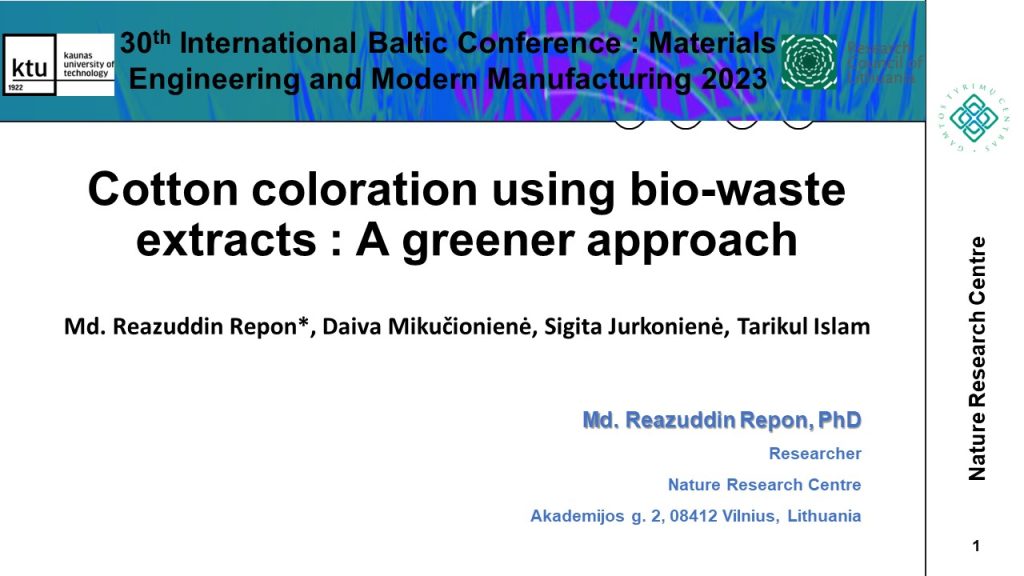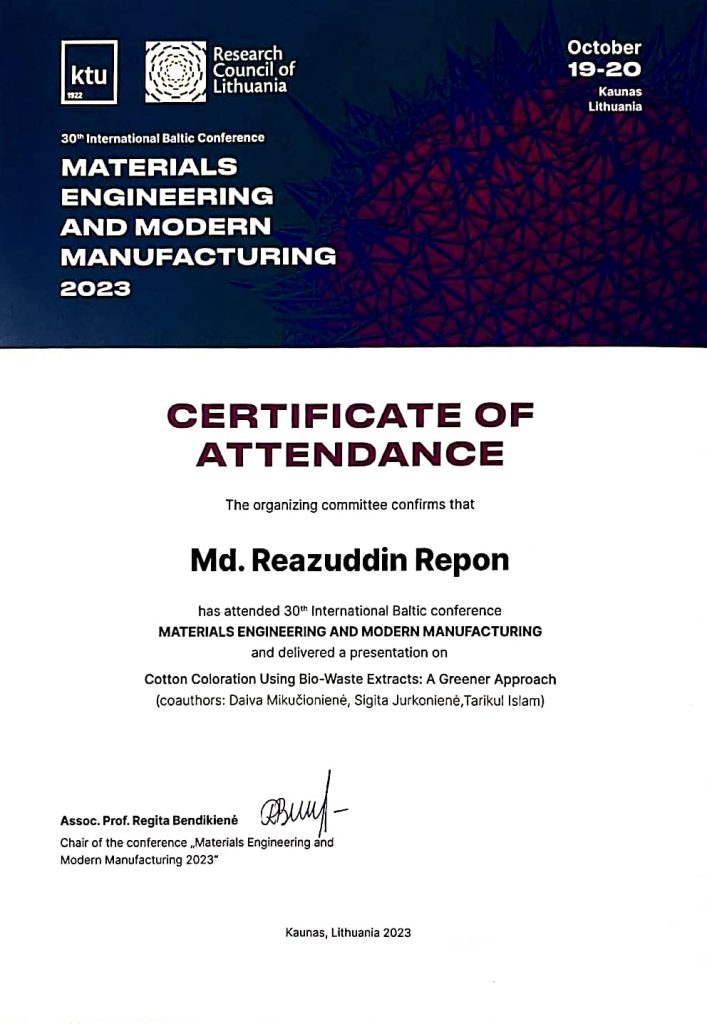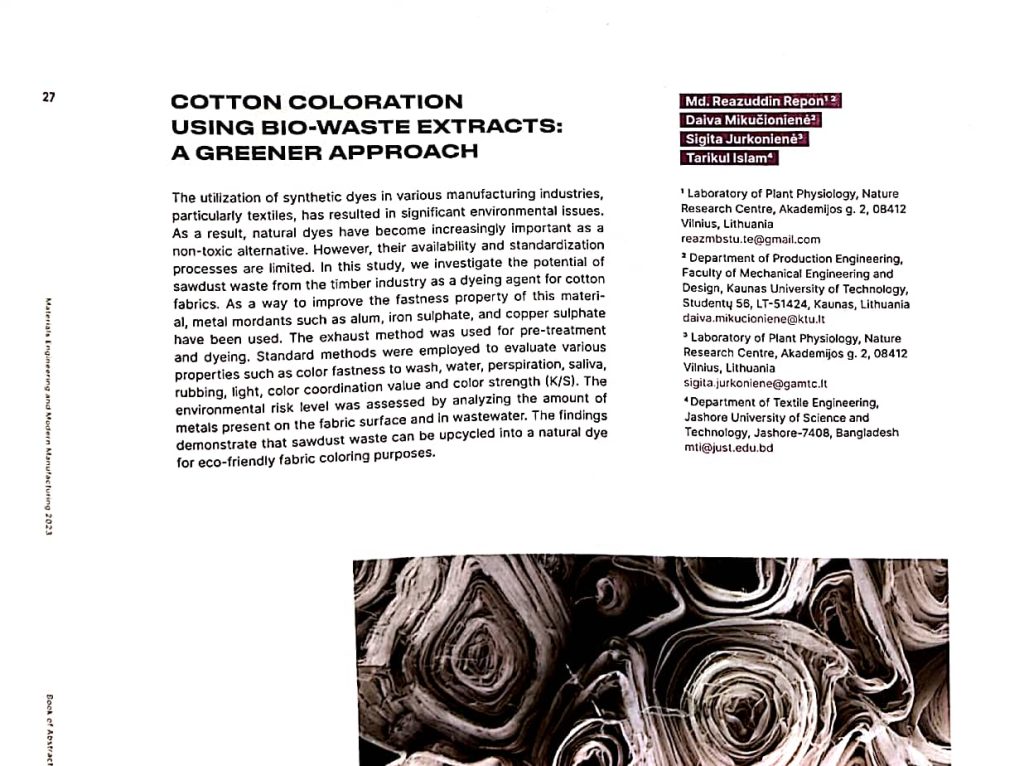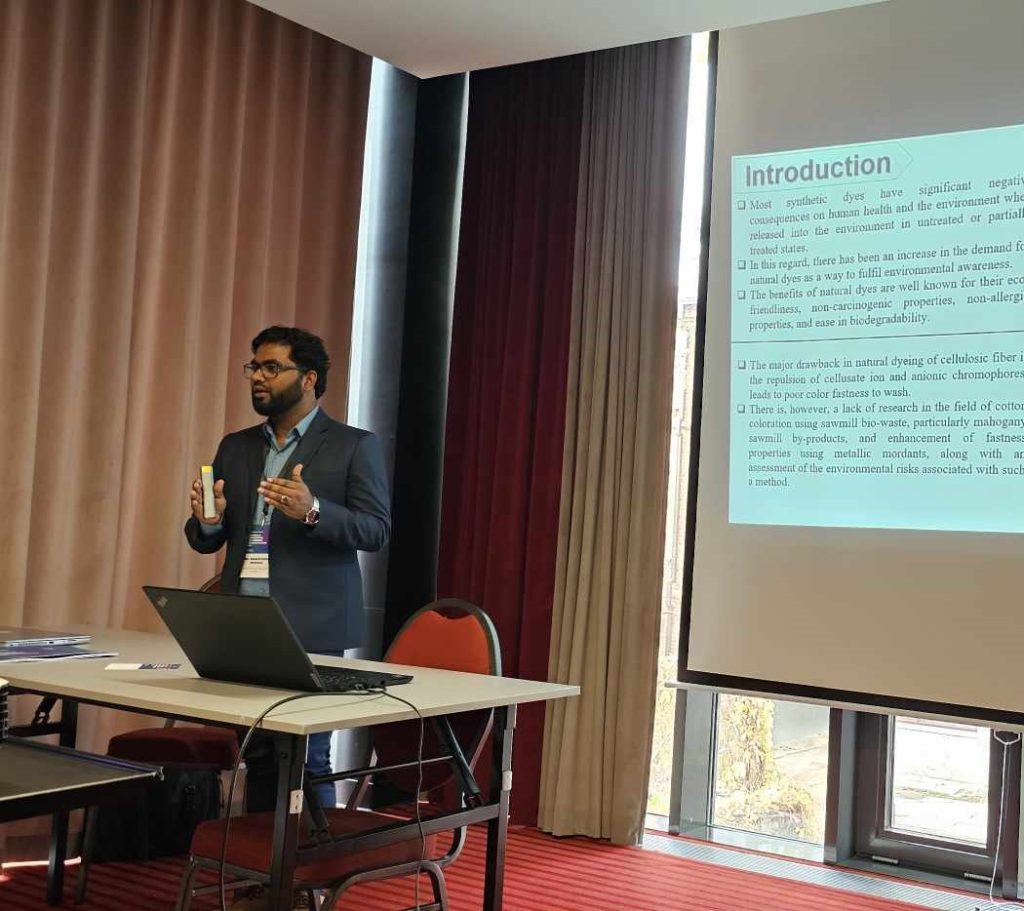Dr. Md. Reazuddin Repon, a scientific worker at the Plant Physiology Laboratory of Nature Research Centre, recently attended the 30th International Baltic Conference on Materials Engineering and Modern Manufacturing 2023. The conference took place on October 19 at Victoria Hotel in Kaunas, Lithuania, and brought together scientists and industry experts in materials engineering from the Baltics and other countries to exchange knowledge.
During the conference, Dr. Reazuddin presented his research titled “Cotton coloration using bio-waste extracts: A greener approach.” The coauthors of this work included Daiva Mikučionienė from Kaunas University of Technology, Sigita Jurkonienė from Nature Research Centre, and Tarikul Islam from the University of Georgia.
The investigation conducted by Dr. Reazuddin aimed to address the challenges of color fastness properties and limited color variety when applying natural dyes to textile coloration. In this study, cotton fabric was pre-mordanted with metallic salts to enhance dye fiber binding through a coordination bond formed between the fiber, metal, and dye.
All color fastness properties, except for light fastness, were greatly satisfied. However, the extent of color variety was not achieved to a high degree. In order to analyze the environmental hazards, the metals loading from the residual mordanting bath and dyeing wastewater were calculated. The amounts of residual metal ions in the mordant bath exceeded the acceptable limit set by environmental standards. However, the levels of trace metals found in the finished fabric were deemed not harmful to human health. Therefore, Dr. Reazuddin suggested further exploration to develop new methods of achieving a wider range of colors while ensuring improved color fastness and reducing the future use of metal salts.



